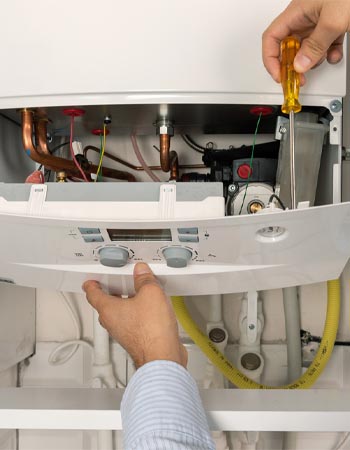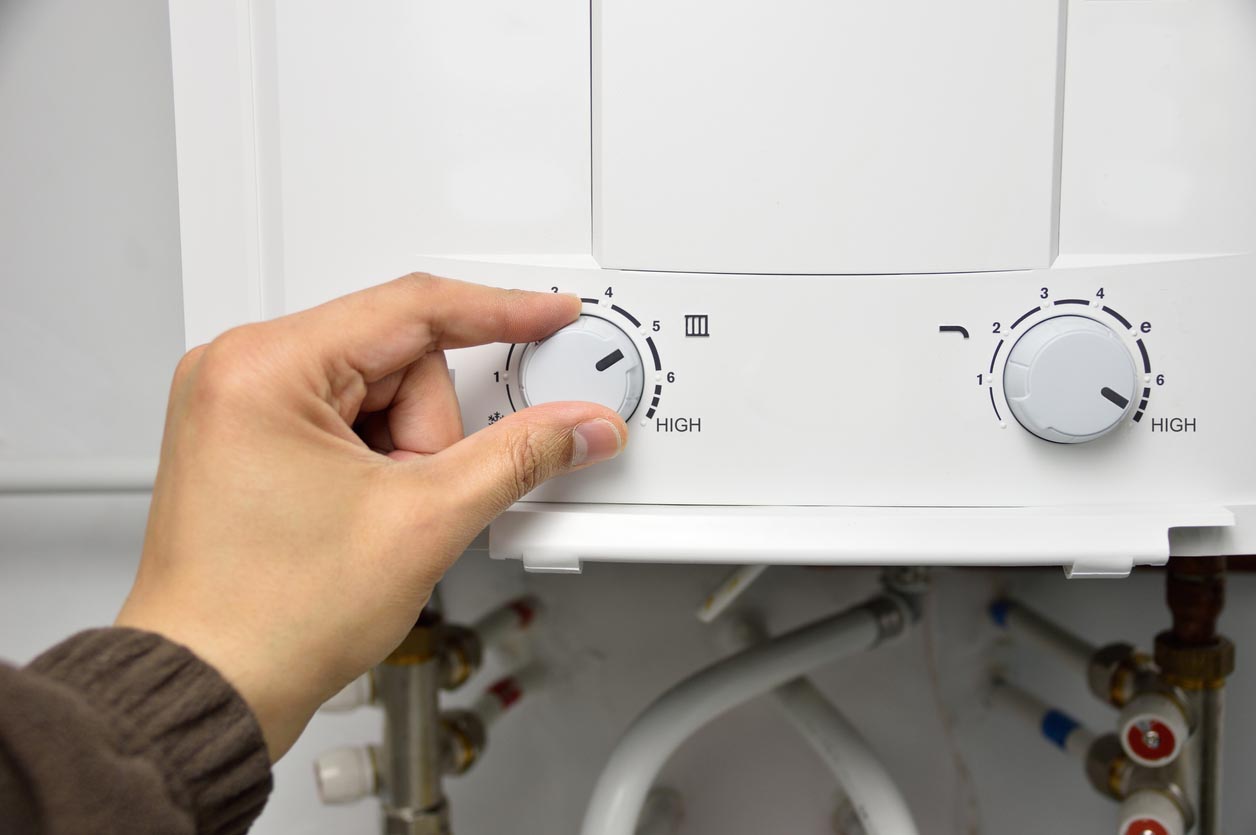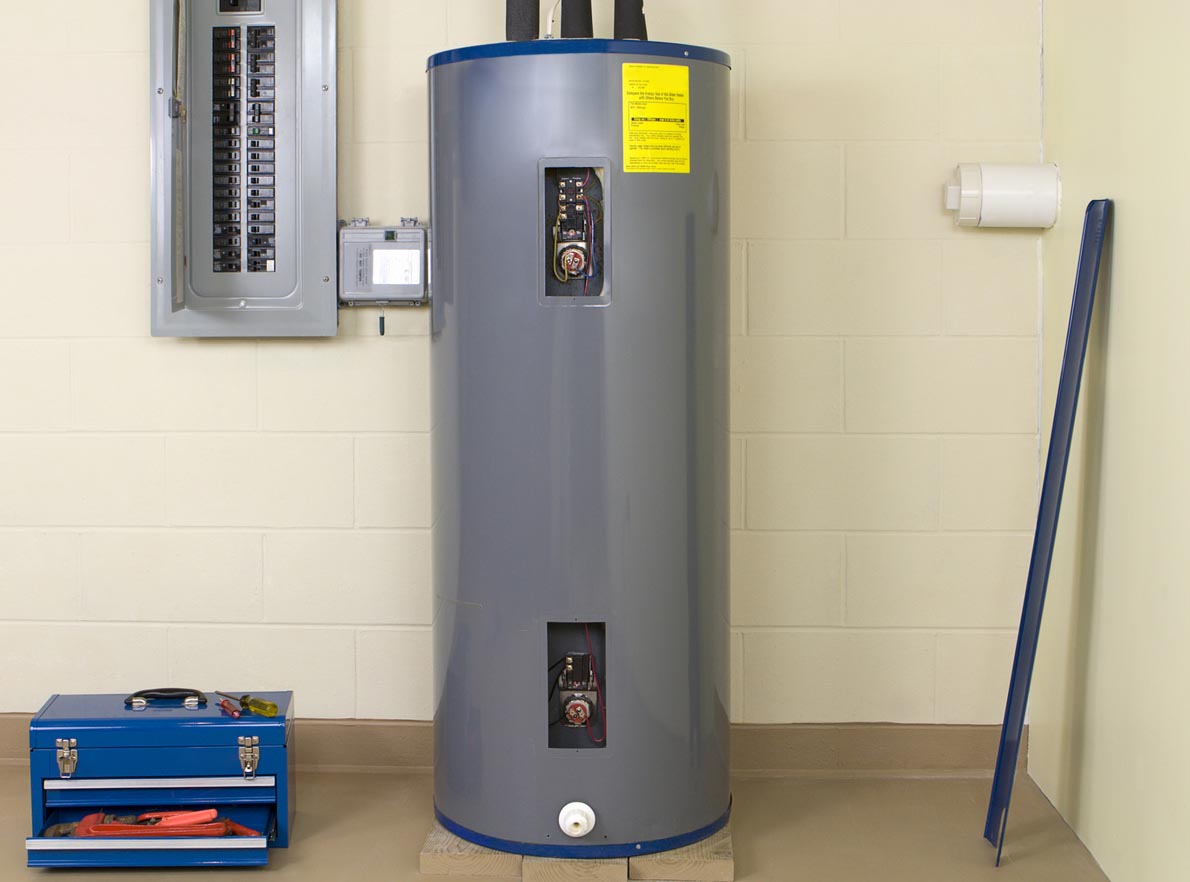We may earn revenue from the products available on this page and participate in affiliate programs. Learn More ›
Q: I’m not receiving a steady flow of hot water from my faucets. Why is my electric water heater not working, and how can I fix it?
A: When homeowners have to choose between a lukewarm or a boiling hot shower, they may need to take a look at their hot water heater. There may be a problem such as a faulty part keeping the electric water heater from working efficiently. From something as simple as a blown fuse to a more complex problem like a broken heating element, there are a few reasons why water heaters can keep homeowners from getting steady access to hot water.
Here are a few common causes of electric hot water heater issues. Homeowners may be able to fix some of these problems themselves, but others may require a local water heater repair professional’s expertise.
The problem could be simple, like a blown fuse or tripped circuit breaker.

Before troubleshooting an electric water heater, homeowners will first want to power off the device for safety. However, before taking this step, homeowners can check the thermostats and electric heating elements to see if the device is receiving power. While it seems obvious, an electric water heater could be experiencing problems because of a blown fuse or a tripped circuit breaker. This happens when a circuit breaker is overwhelmed with large amounts of energy, such as when a water heater’s elements are overloading the circuit.
To remedy the issue, turn off the water heater and head to the breaker box in the home. Find the tripped circuit breaker, then pull the circuit breaker handle down, then back up. Finally, try to turn on the water heater and see if the issue is fixed.
The thermostat could be faulty and causing problems.
If the power seems to be flowing optimally to the water heater, it’s time to check the water tank’s thermostat. While it’s uncommon for a thermostat to fail before a heating element, it is possible. In hot water tanks, thermostats ensure the water stays hot by controlling the influx of electricity, which heats the elements in a hot water tank.
For homes with a single-element hot water heater, this means that a single thermostat’s failure can stop hot water in the home completely. A double-element water heater has two thermostats to maintain the top and bottom portions of the tank. As water is heated in the upper portion of the tank, the power is rerouted to the bottom element. If the upper thermostat is faulty, it can keep all the hot water in the tank from heating properly. If the bottom thermostat is out, the heater can still use a portion of the hot water; however, it will be in limited supply.
Additionally, if a homeowner is only receiving scalding hot water from their taps, this may be from the thermostat being set too high. A hot water heater repair technician can safely reset the thermostat and adjust the temperature to the preferred setting.
The electric water heating element may not be working.
If the electric hot water heater’s thermostats are working correctly, the problem could be a faulty electrical water heating element. As explained above, water is heated in the upper component of the hot water tank, and the water will flow to the lower segment. If a home is consistently only producing lukewarm water, this is indicative of a faulty upper heating element. Conversely, if homeowners are getting hot water for only a few minutes before it reverts back to cool or lukewarm water, the lower portion of the heating element may not be working properly. If either of the heating elements has failed, they will need to be replaced by a qualified professional.

An undersized water heater could cause you to run out of hot water too quickly.
A home with an undersized water heater can have problems producing adequate hot water for the home. A hot water tank must be comprised of at least 75 percent hot water to ensure efficiency. For example, a 45-gallon hot water tank can meet the home’s demand of up to 35 gallons of hot water at a time.
If a homeowner finds their hot water tank is too small, they can try alternating using appliances in need of hot water—for example, running the dishwasher after washing a load of clothes. Homeowners can also install a shower head that can reduce the amount of water being used at a time. If it becomes a running issue, it may be worth it in the long term to find a hot water heater replacement company. Water heater replacement costs an average of $1,200, but the expense could be worth it.
A plumber can handle any problems with a water heater.
Unless they have a background in plumbing, a homeowner may not be able to diagnose their hot water heater problems alone. While the manufacturer’s guide can be a good first place to start, getting an opinion from a pro is recommended. Who fixes water heaters? Depending on the issue, either a licensed plumber or electrician will be needed. Hiring an experienced technician can ensure that problems are resolved efficiently and effectively and that a homeowner doesn’t need to be without hot water for long. A technician can also determine if repairs won’t fix the issue and if it’s time to replace your water heater. It’s worth considering a replacement before the water heater fails completely.


